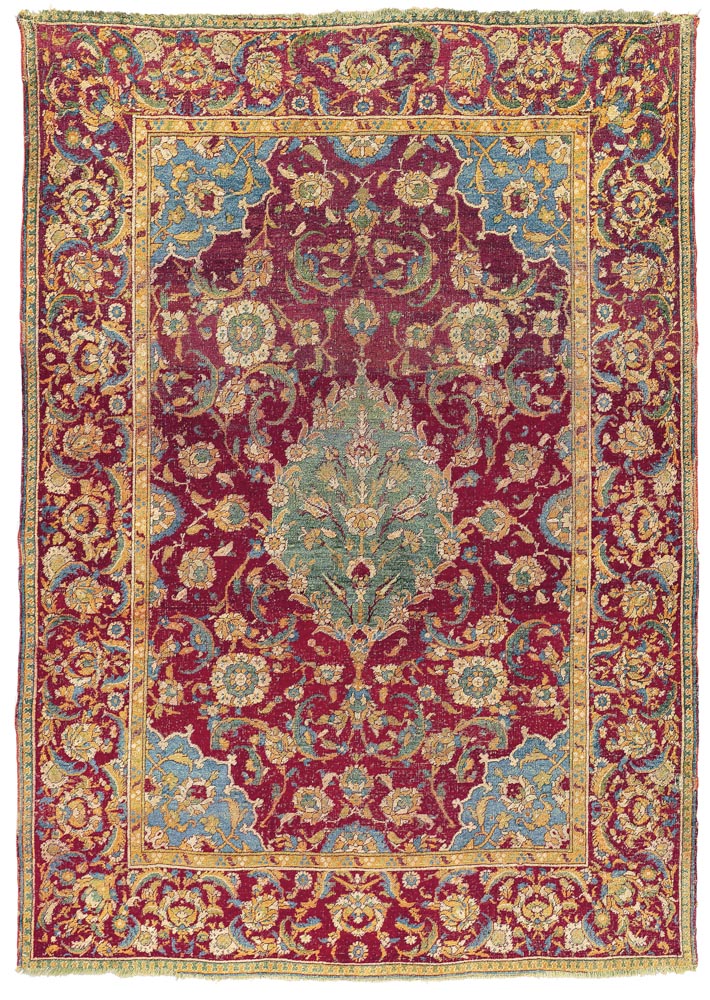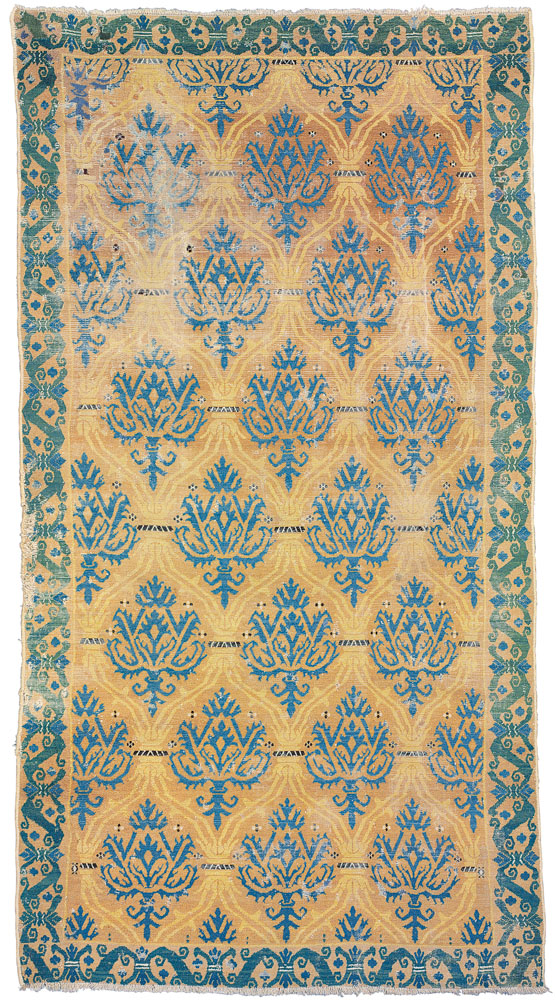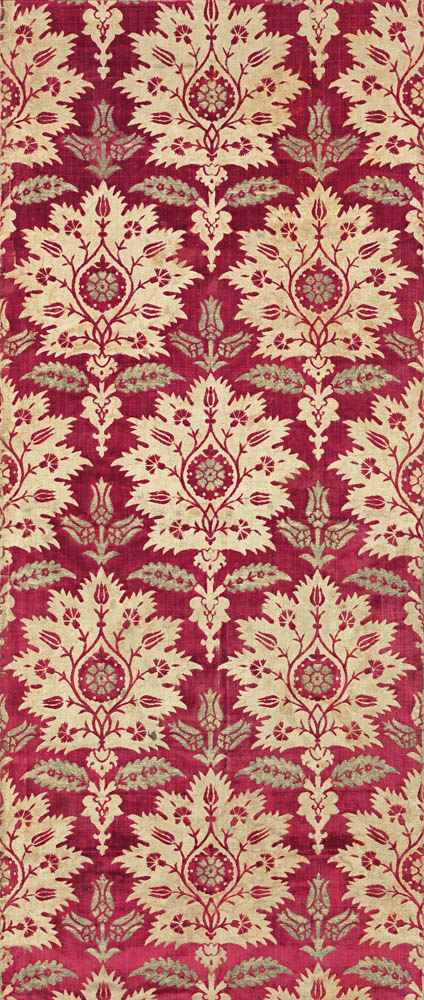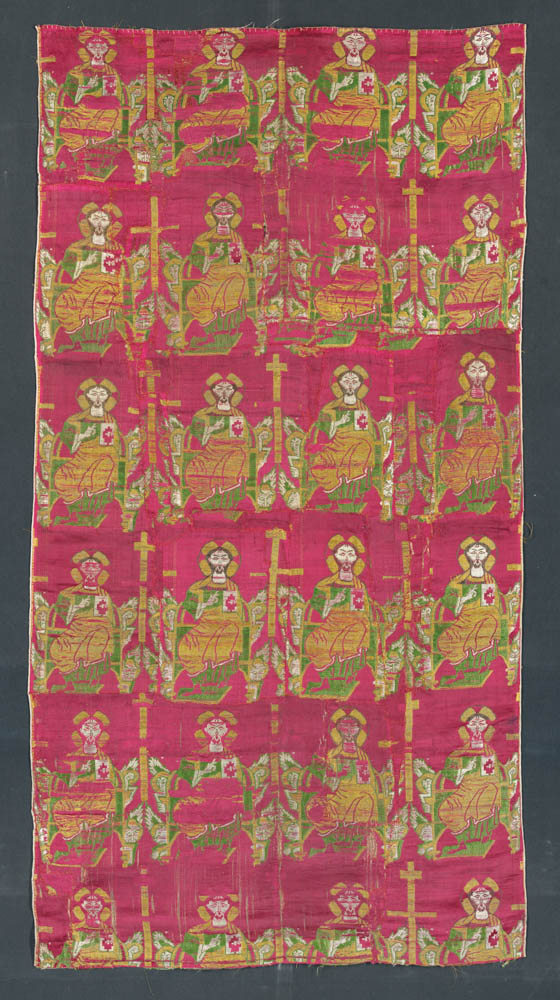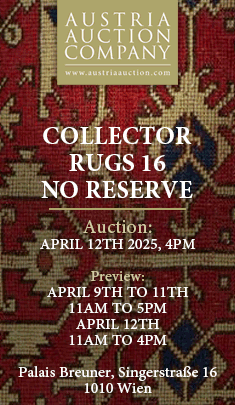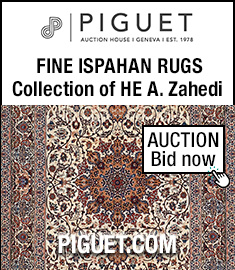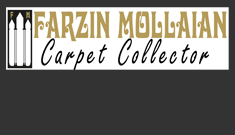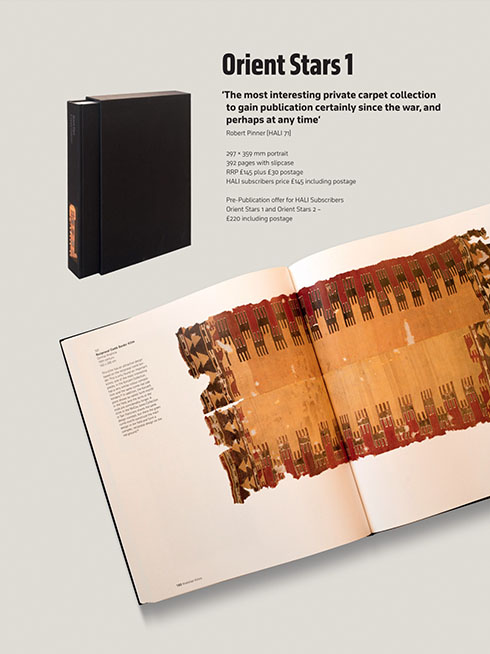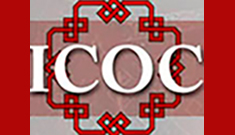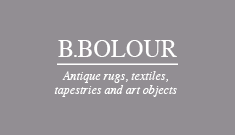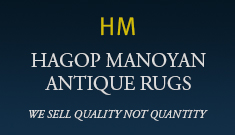The London autumn 2014 carpet and textile sales
There was a distinctly autumnal feel about the recent London sales season, at least as far as antique rugs and textiles were concerned. Although the main action, at Christie’s King Street on Tuesday 7th October 2014, yielded £1,513,375 ($2,435,020), representing 59% sold by lot and 69% by value, the auction took place in a saleroom that was listless compared to the excitement and optimism of their lively spring sale last April.
As expected, top lot at King Street was Lot 50, the well-known 18th century Douglass/Ritman Mughal millefleurs prayer rug, unique in its pure pastel palette and wonderfully tactile, which was a bargain for a private Middle Eastern collector at £338,500 ($544,650) including premiums, against an estimate of £300-500,000. The price sounds high enough until one notes that last time the rug appeared at auction, at Sotheby’s in New York in April 1996, it made $805,000 (HALI 87, p.161).
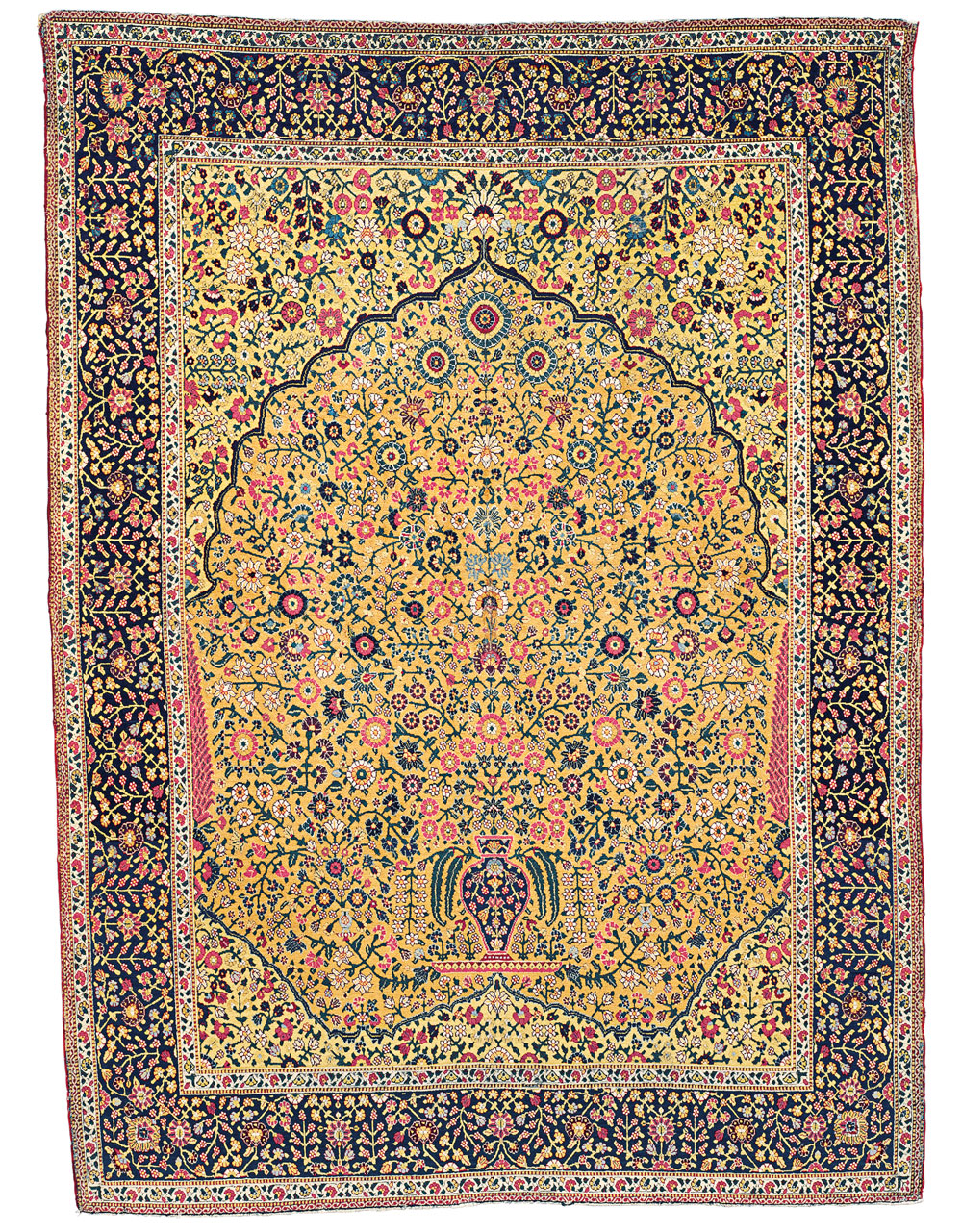
CLO, Lot 50. THE DOUGLASS/RITMAN MUGHAL ‘MILLEFLEURS’ PRAYER RUG, NORTH INDIA, PROBABLY KASHMIR, 18TH CENTURY. £338,500 ($544,647)
Head of Christie’s oriental carpet department Louise Broadhurst expressed particular satisfaction at the £98,500 ($158,485), double its estimate, paid by a different Middle Eastern private buyer for Lot 112, a 1920s silk and metal thread Kum Kapı carpet, again with pastel tonality, and an allover cartouche design based on the so-called Clam Gallus carpet in the MAK, Vienna. In her post sale statement, she also noted that all of the top ten lots were bought by private collectors, both Middle Eastern and European, outbidding both institutions and the trade.
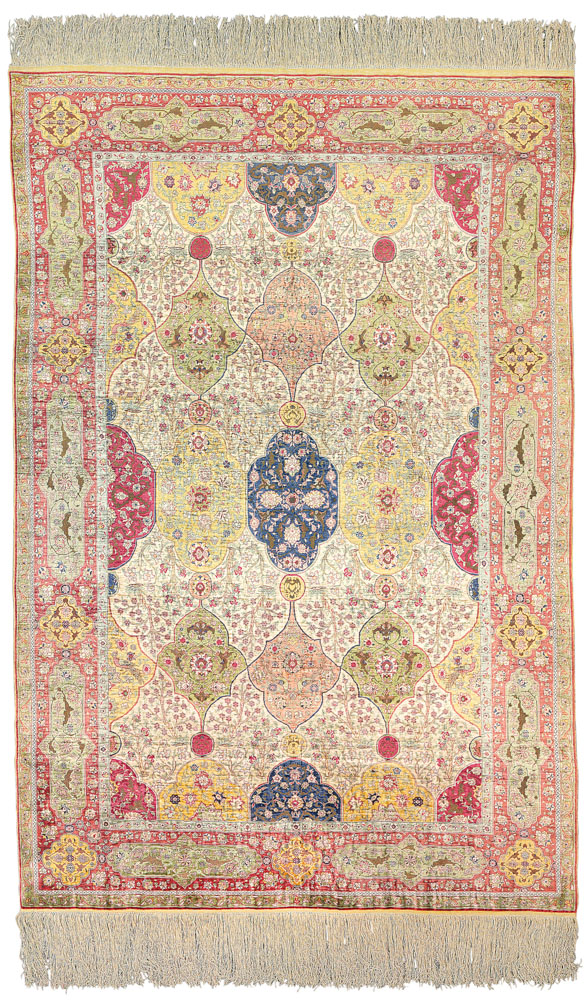
CLO, Lot 112. SILK AND METAL-THREAD KUM KAPI CARPET, ISTANBUL, TURKEY, CIRCA 1920. £98,500 ($158,487)
Others among the headline lots included Lot 53, a boldly beautiful 17th century central Persian part-cotton and metal thread rug, which also doubled its pre-sale estimate, making £86,500 ($139,180), while Lot 24, a late 16th or early 17th century Cairene Ottoman rug with a directional palmette medallion, made £80,500 ($129,525), right on high estimate.
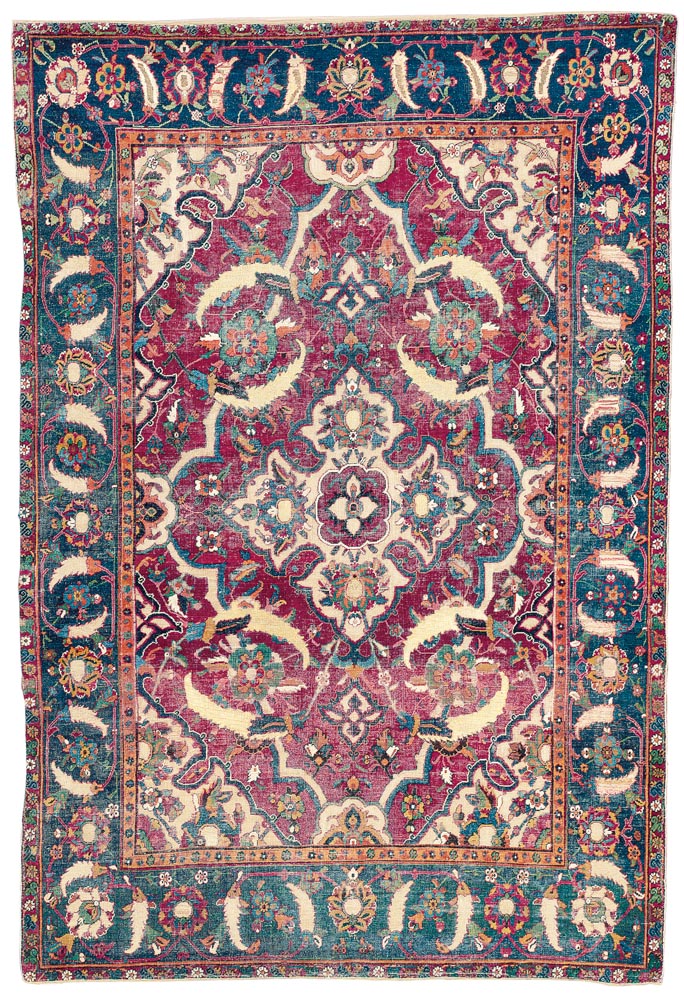
CLO, Lot 53. ESFAHAN PART-COTTON AND METAL-THREAD RUG, CENTRAL PERSIA, SECOND QUARTER 17TH CENTURY. £86,500($139,179)
The cover piece, Lot 100, an elegant 16th century Alcaraz carpet with an allover ogival lattice design, fetched £62,500 ($100,650). The same price was paid for Lot 115, a typically worn and colourless Esfahan ‘Polonaise’ silk and metal thread carpet, which proved the enduring saleability of the type – an even more worn and ghostly ‘Polonaise’, but with Rothschild provenance, had sold for £31,250 ($50,595) at South Kensington a week earlier on 1 October (Lot 512 in CSK’s ‘European Noble & Private Collections’ sale).
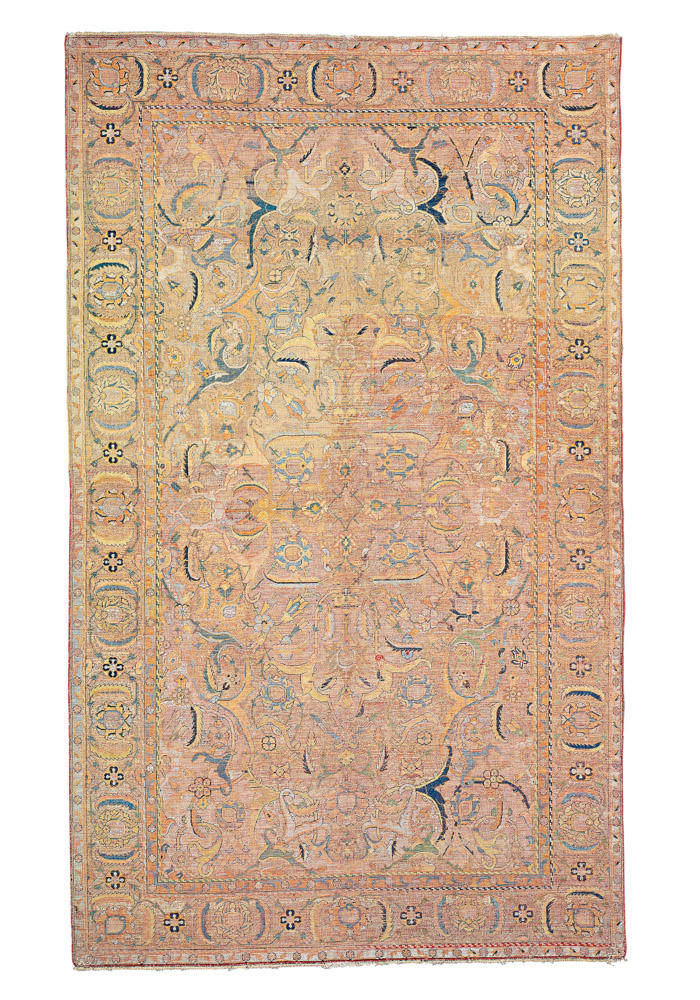
CLO, Lot 115. SILK AND METAL-THREAD ‘POLONAISE’ RUG, ESFAHAN, CENTRAL PERSIA, FIRST QUARTER 17TH CENTURY. £62,500 ($100,563)
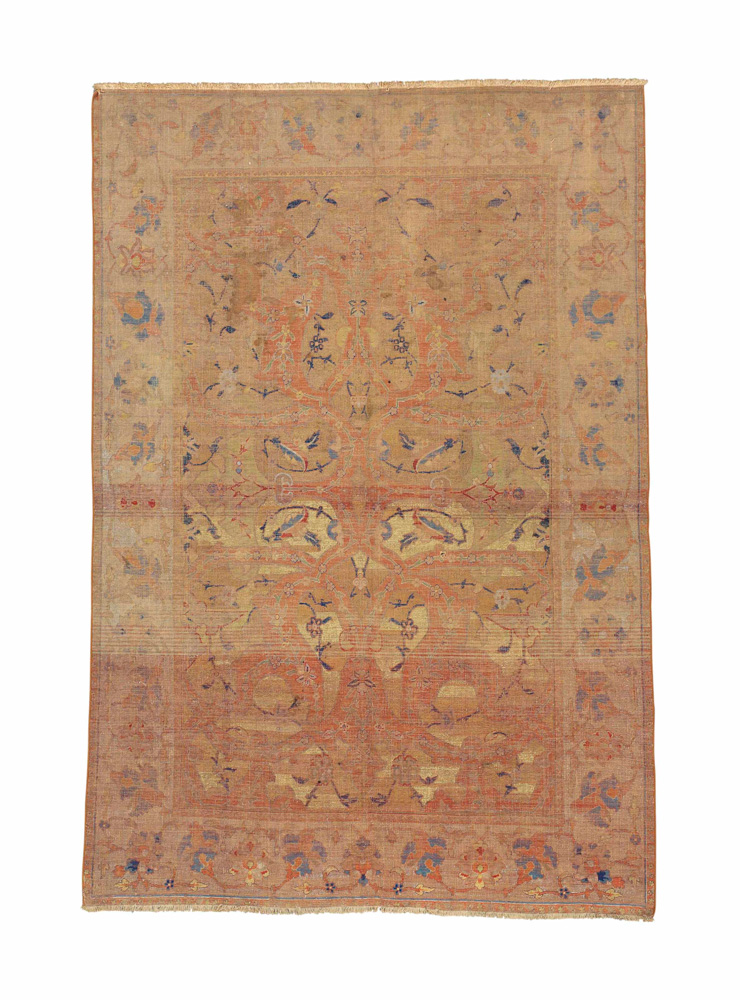
European Noble and Private Collections Part II, Christie’s South Kensington, 1 October, sale 5956 512 A SILK AND METAL-THREAD ‘POLONAISE’ RUG ISFAHAN, CENTRAL PERSIA, FIRST QUARTER 17TH CENTURY 6 ft. 8 in. x 4 ft. 7 in. (203 cm. x 138 cm.) Estimate £10,000-15,000, sold for £31,250 ($50,595). Provenance: The Barons Nathaniel and Albert von Rothschild
Other areas of Christie’s sale disappointed – collectable Turkmen and Baluch rugs and embroideries, southern Swedish folk textiles and Tibetan rugs all failed to find interest, although some decent Caucasians and good Persian decoratives sold well, albeit at prices that are a mere fraction of what might have been paid for such things a couple of decades ago.
Only one carpet of note was successful in Bonham’s Islamic sale on 7 October, Lot 263, a typical Kum Kapı head and shoulders silk and metal thread prayer rug, designed by Zareh Penyamian, which sold for £27,500 ($44,275).

Bonhams, Lot 263. ZAREH PENYAMIN KUM KAPI SILK AND METAL THREAD RUG, Istanbul, Turkey, circa 1910, 174 x 107 cm. Sold for £27,500 ($44,275)
Top lot among the rugs and textiles included as an afterthought in Sotheby’s New Bond Street Sale of Arts of the Islamic World was Lot 192, a very well ordered late 16th century small-medallion Ushak rug, which sold for £134,500 ($216,545). And while a Turkmen pentagonal embroidered asmalyk at Christie’s had failed to find a buyer, a closely related piece at SLO (Lot 189), but arguably prettier with some figural elements in the border, was not expensive at just £6,785 ($10,925).
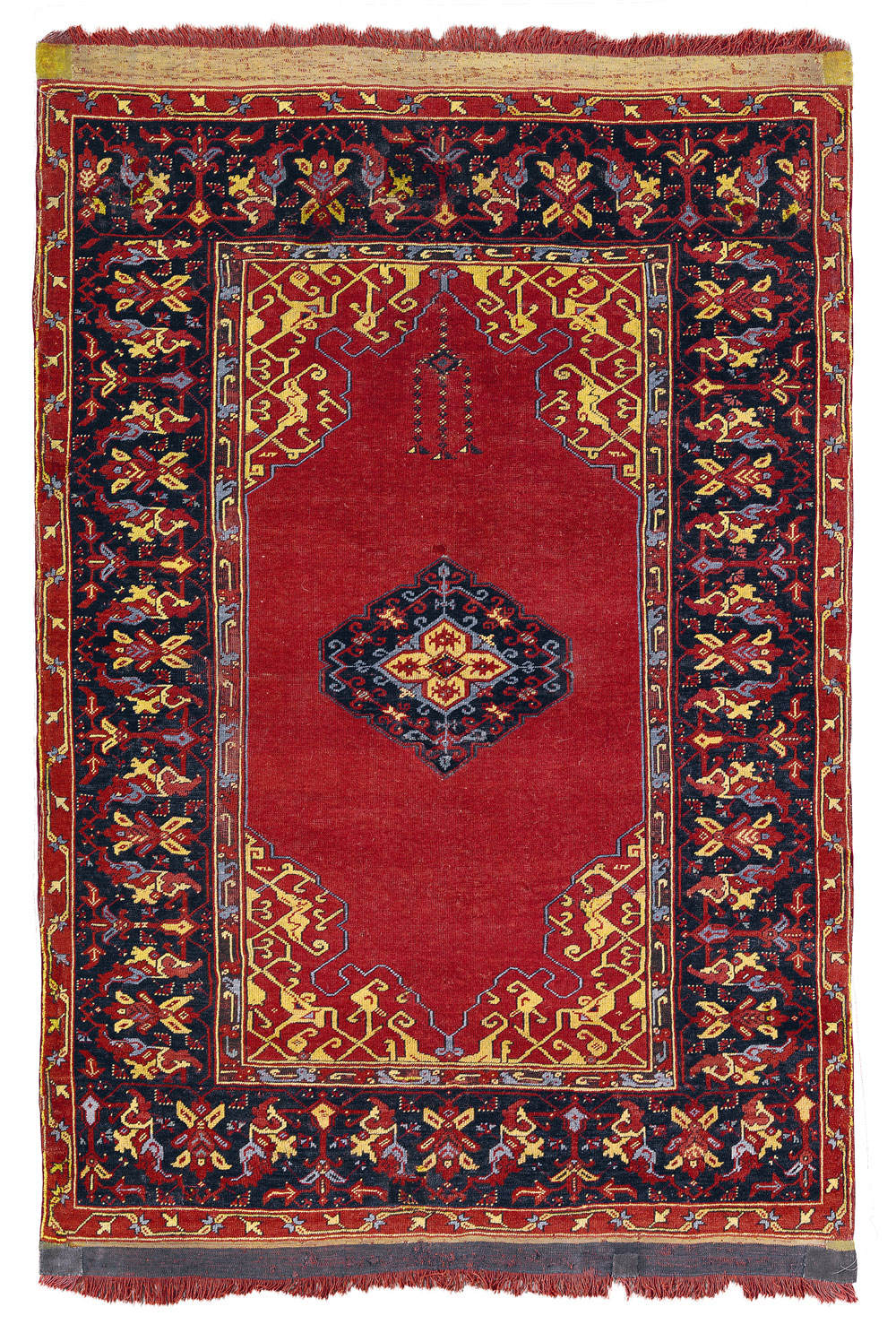
SLO, Lot 192. AN USHAK ‘SMALL MEDALLION’ RUG, WEST ANATOLIA. 16th century. Estimate £80,000 — 120,000, sold for £134,500 ($216,545)
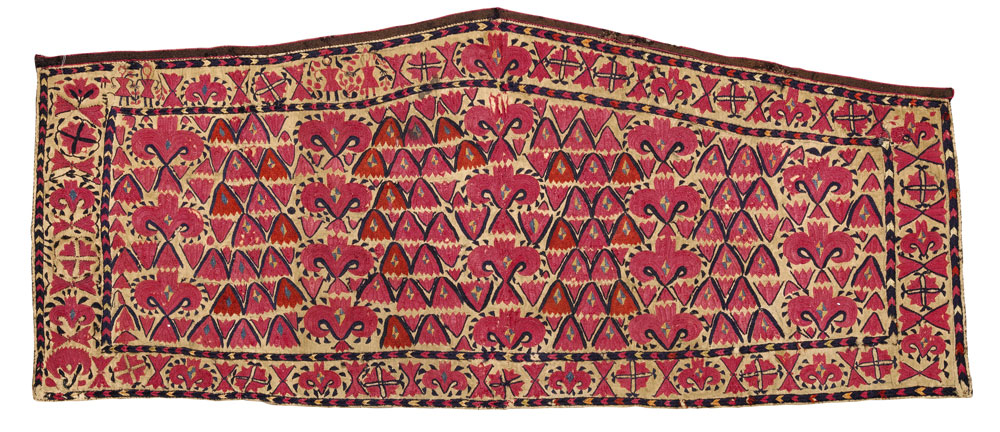
SLO, Lot 189. TEKKE TURKMEN SILK AND WOOL EMBROIDERED ASMALYK, TURKESTAN, 19th century, Estimate £4,000 — 6,000, LOT SOLD. £6,875 ($10,925)
The standout textile in Christie’s sale of Art of the Islamic and Indian Worlds on Thursday 9th October was Lot 154, a richly embroidered silk and metal thread Deccani panel, which sold for £35,000 ($56,560).
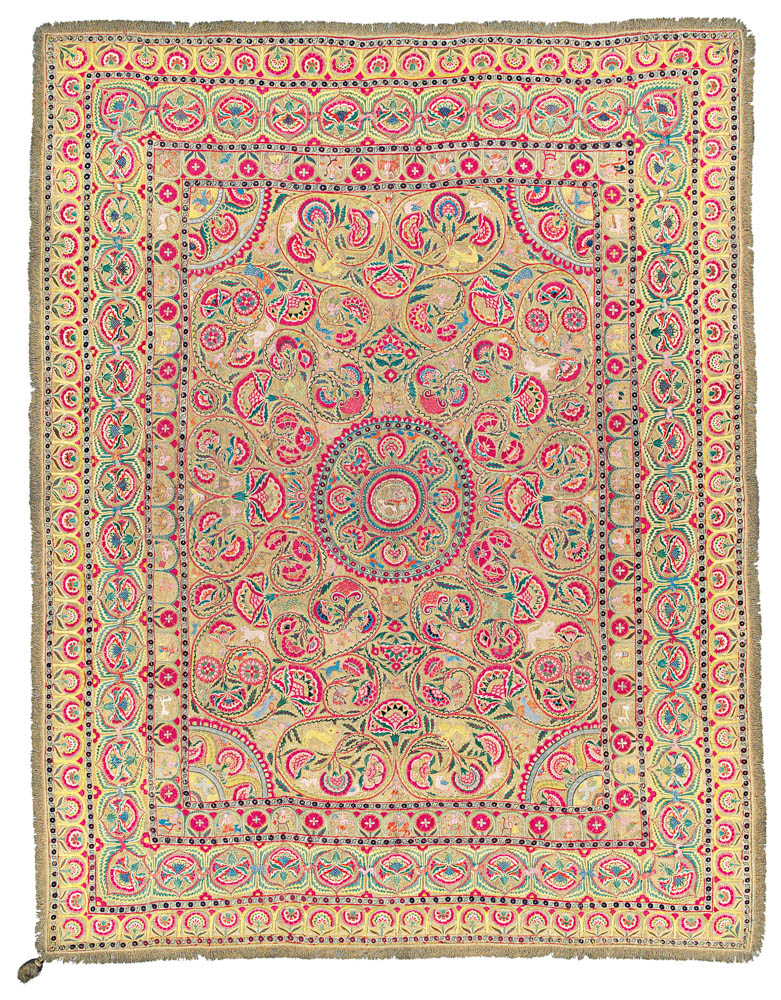
CLO, Art of the Islamic and Indian Worlds Lot 154 A FIGURAL EMBROIDERED PANEL, CENTRAL INDIA, CIRCA 1800 Estimate £25,000-35,000 sold for £11,875($19,190)
Three good 17th century Ottoman textiles also performed well at Christie’s: Lot 94, a çatma silk and metal thread yastık (£11,875/$19,190); Lot 100, a Bursa velvet panel with boldly drawn palmettes (£20,000/$32,320); and Lot 112, rarest and most interesting of all, a figural silk and metal thread kemha length depicting Christ Pantocrator, made for the Russian Orthodox market (£25,000/$40,400).
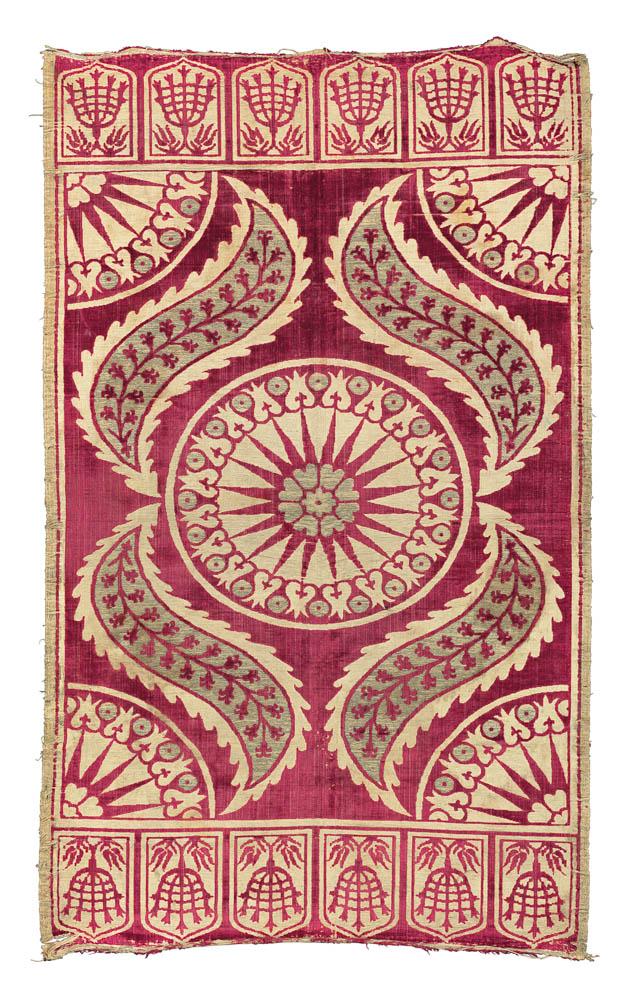
CLO, Art of the Islamic and Indian Worlds, Lot 94 A SILK VELVET AND METAL THREAD WOVEN ÇATMA, TURKEY, 17TH CENTURY. Estimate £7000-10,000, sold for £11,875 ($19,190)


